
Can I drink tap water?
Zhu Huo, a marketing officer in her 30s originally from Shanghai, insists on not drinking tap water, even if it's boiled. She doesn't use it for cooking, either.
"There are many types of sediment, white and yellow, at the bottom of the bowl, and you don't know what they are," Zhu said. "The smell is bad and the taste, too."
Some Beijingers question whether the tap water in Beijing is drinkable. But experts offer different takes on the issue.
"It shouldn't be much of a problem to drink cold water directly from tap, since chlorine is added to sterilize the water," said Dong Jingshi, expert in environmental chemistry and food safety.
But don't go pouring yourself a glass just yet. While it should be safe, the water comes into contact with so many elements in the pipes, tanks and taps it encounters along the way to your home that many harmful reactions may happen en route. Dong names carbon tetrachloride as one potentially harmful by-product. Therefore, Dong recommends boiling tap water before drinking.
To do so, he suggests letting the water boil for about three minutes. This will kill the bacteria and remove most hazardous organisms.
Dong believes boiled tap water is much better than bottled water, since the new, strict quality standards with 106 indicators for tap water have been in effect since 2007, as set by the Ministry of Health and Standardization Administration and supervised by the Beijing Municipal Health Bureau. "Not to mention that tap water is much more economical compared to bottled water," he said.
The last water panic and subsequent nationwide discussion on water safety happened earlier this year in January after Zhao Feihong, 58, a researcher on drinking water at the Beijing Healthcare Association, and her husband, also a water expert, admitted that they haven't had tap water in 20 years, the Global Times reported.
Zhao agrees with Dong that tap water is basically drinkable when it leaves the waterworks, but she also points out that the century-old water system of Beijing causes secondary pollution as the water is delivered to houses.
"Our processing techniques and equipment lag behind other countries," Dong said. "Our pipes are usually made of iron or even PVC, while they use stainless steel or PPR (polypropylene random) abroad."
Conclusion: The good news on the tap water front is that the Beijing Waterworks Group plans to invest 1.8 billion yuan ($294 million) into improving and revising water supply facilities this year. Still, it's far from enough, Zhao said, and probably will not get Beijingers any closer to being able to drink straight from the tap.
Like many residents, especially in the foreign population, Li Xin, 25, doesn't trust or drink the tap water in Beijing.
Once when Li woke up thirsty in the middle of the night, he found that his water dispenser was empty, so he swigged a glassful of cold tap water and went back to sleep. The next day, Li suffered from serious diarrhea and could barely stand.
A sales manager in the Internet industry and native of Changchun, Jilin Province, Li moved to Beijing three years ago, and calls the local water "unpalatable."
"Growing up in my hometown, the kettle would stay clean for years without collecting white sediment," Li recalled. "We could drink directly from the tap."


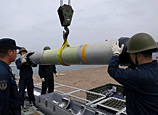
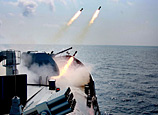
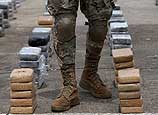


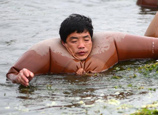

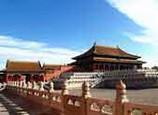
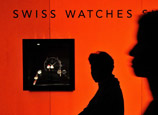







 Modern movie dream in retro Mingguo street
Modern movie dream in retro Mingguo street


![]()
